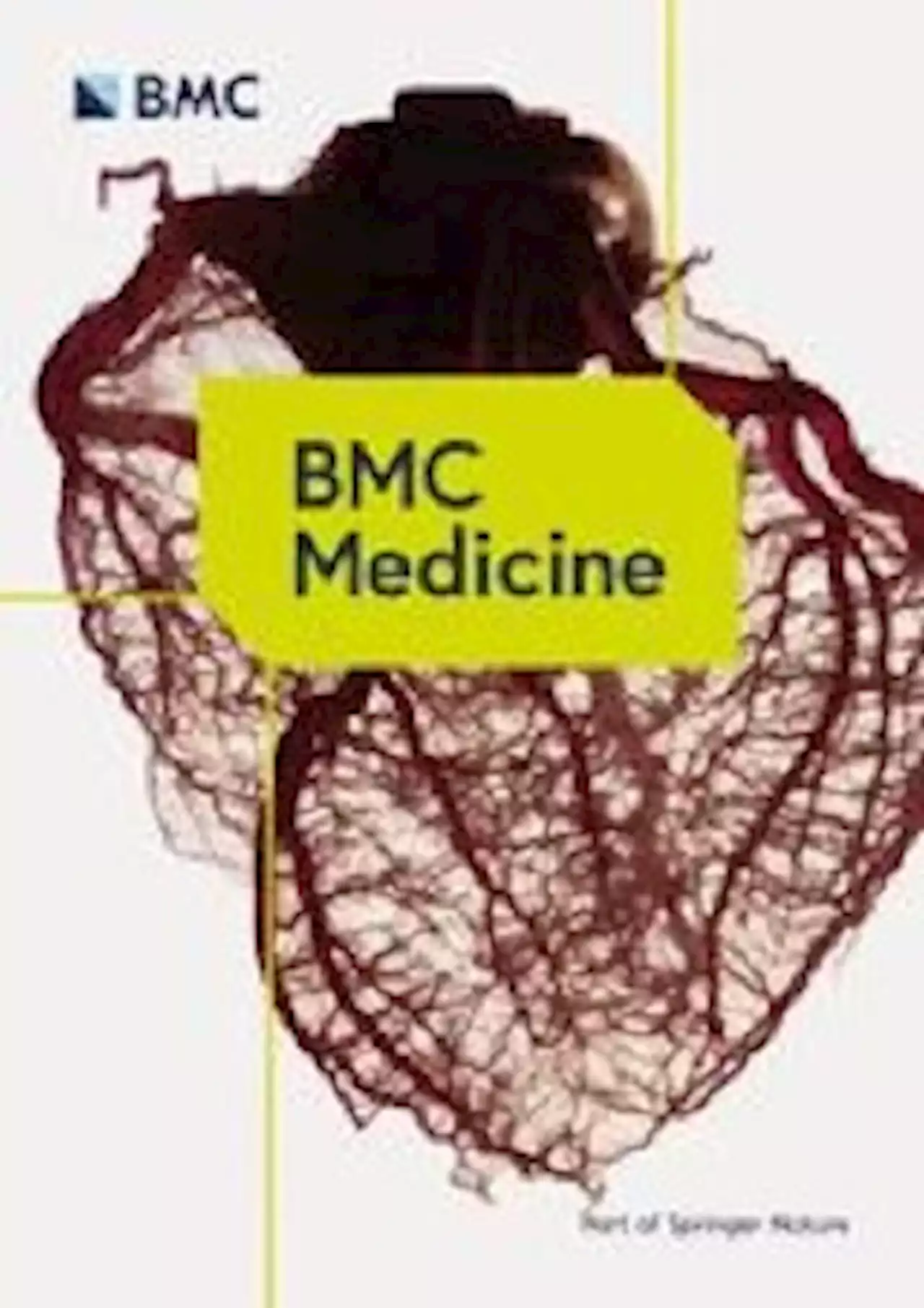Is a multicomponent hypertension management program implemented in the public primary care setting associated with fewer patient complications and mortality? JAMANetworkOpen hypertension bloodpressure health
By Pooja Toshniwal PahariaMay 26 2023Reviewed by Danielle Ellis, B.Sc. In a recent study published in JAMA Network Open, researchers compared hypertension-associated complications and the use of healthcare services at five years among hypertensive individuals managed using the Risk Assessment and Management Program for Hypertension versus regular care.
About the study In the present prospective cohort study, researchers investigated whether a collaborative, protocol-driven and multicomponent hypertension management program implemented in primary healthcare settings was related to fewer complications and lower mortality among hypertensive patients. The study interventions included nurse-performed risk estimations in linkage with electronic reminder systems, nurse interventions, and specialist consultations, apart from the regular scare. Risk assessments were performed 12.0 to 30.0 months apart using the Joint British Societies’ calculator, whereas specialist consultations and nurse interventions were performed when necessary.
The team performed Cox proportional hazards regression modeling and binomial regression modeling to calculate the hazard ratios and incidence rate ratios , respectively, adjusting for covariates such as age, sex, smoking status, height, weight, blood pressure, fasting blood glucose, estimated glomerular filtration rate , and lipid profile.
United Kingdom Latest News, United Kingdom Headlines
Similar News:You can also read news stories similar to this one that we have collected from other news sources.
 Prediabetes, intervening diabetes and subsequent risk of dementia: the Atherosclerosis Risk in Communities (ARIC) study - DiabetologiaAims/hypothesis The aim of this work was to evaluate whether the association of prediabetes with dementia is explained by the intervening onset of diabetes. Methods Among participants of the Atherosclerosis Risk in Communities (ARIC) study we defined baseline prediabetes as HbA1c 39–46 mmol/mol (5.7–6.4%) and subsequent incident diabetes as a self-reported physician diagnosis or use of diabetes medication. Incident dementia was ascertained via active surveillance and adjudicated. We quantified the association of prediabetes with dementia risk before and after accounting for the subsequent development of diabetes among ARIC participants without diabetes at baseline (1990–1992; participants aged 46–70 years). We also evaluated whether age at diabetes diagnosis modified the risk of dementia. Results Among 11,656 participants without diabetes at baseline, 2330 (20.0%) had prediabetes. Before accounting for incident diabetes, prediabetes was significantly associated with the risk of dementia (HR 1.12 [95% CI 1.01, 1.24]). After accounting for incident diabetes, the association was attenuated and non-significant (HR 1.05 [95% CI 0.94, 1.16]). Earlier age of onset of diabetes had the strongest association with dementia: HR 2.92 (95% CI 2.06, 4.14) for onset before 60 years; HR 1.73 (95% CI 1.47, 2.04) for onset at 60–69 years; and HR 1.23 (95% CI 1.08, 1.40) for onset at 70–79 years. Conclusions/interpretation Prediabetes is associated with dementia risk but this risk is explained by the subsequent development of diabetes. Earlier age of onset of diabetes substantially increases dementia risk. Preventing or delaying progression of prediabetes to diabetes will reduce dementia burden. Graphical Abstract
Prediabetes, intervening diabetes and subsequent risk of dementia: the Atherosclerosis Risk in Communities (ARIC) study - DiabetologiaAims/hypothesis The aim of this work was to evaluate whether the association of prediabetes with dementia is explained by the intervening onset of diabetes. Methods Among participants of the Atherosclerosis Risk in Communities (ARIC) study we defined baseline prediabetes as HbA1c 39–46 mmol/mol (5.7–6.4%) and subsequent incident diabetes as a self-reported physician diagnosis or use of diabetes medication. Incident dementia was ascertained via active surveillance and adjudicated. We quantified the association of prediabetes with dementia risk before and after accounting for the subsequent development of diabetes among ARIC participants without diabetes at baseline (1990–1992; participants aged 46–70 years). We also evaluated whether age at diabetes diagnosis modified the risk of dementia. Results Among 11,656 participants without diabetes at baseline, 2330 (20.0%) had prediabetes. Before accounting for incident diabetes, prediabetes was significantly associated with the risk of dementia (HR 1.12 [95% CI 1.01, 1.24]). After accounting for incident diabetes, the association was attenuated and non-significant (HR 1.05 [95% CI 0.94, 1.16]). Earlier age of onset of diabetes had the strongest association with dementia: HR 2.92 (95% CI 2.06, 4.14) for onset before 60 years; HR 1.73 (95% CI 1.47, 2.04) for onset at 60–69 years; and HR 1.23 (95% CI 1.08, 1.40) for onset at 70–79 years. Conclusions/interpretation Prediabetes is associated with dementia risk but this risk is explained by the subsequent development of diabetes. Earlier age of onset of diabetes substantially increases dementia risk. Preventing or delaying progression of prediabetes to diabetes will reduce dementia burden. Graphical Abstract
Read more »
 DWP shares whether PIP due to change when it becomes only DWP health assessmentDWP shares whether PIP due to change when it becomes the only health assessment for benefits
DWP shares whether PIP due to change when it becomes only DWP health assessmentDWP shares whether PIP due to change when it becomes the only health assessment for benefits
Read more »
 Clinical trials are vital to science, yet researchers keep moving the goalpostsClinical trials are vital to science, yet researchers keep moving the goalposts 📨 Read StuartJRitchie's latest newsletter
Clinical trials are vital to science, yet researchers keep moving the goalpostsClinical trials are vital to science, yet researchers keep moving the goalposts 📨 Read StuartJRitchie's latest newsletter
Read more »
 Man United takeover delay puts Graham Potter's return to management on holdManchester United’s proposed takeover is preventing former Chelsea manager Graham Potter from returning to management, reports claim. Potter was relieved of his duties at Stamford Bridge in April a…
Man United takeover delay puts Graham Potter's return to management on holdManchester United’s proposed takeover is preventing former Chelsea manager Graham Potter from returning to management, reports claim. Potter was relieved of his duties at Stamford Bridge in April a…
Read more »
 Change in habitual intakes of flavonoid-rich foods and mortality in US males and females - BMC MedicineBackground Higher baseline intakes of flavonoid-rich foods and beverages are associated with a lower risk of chronic disease and mortality in observational studies. However, associations between changes in intakes and mortality remain unclear. We aimed to evaluate associations between 8-year changes in intakes of (1) individual flavonoid-rich foods and (2) a composite measure (termed the ‘flavodiet’) of foods and beverages that are known to be main contributors to flavonoid intake and subsequent total and cause-specific mortality. Methods We evaluated associations between 8-year changes in intakes of (1) individual flavonoid-rich foods and (2) a novel ‘flavodiet’ score and total and cause-specific mortality. We included 55,786 females from the Nurses’ Health Study (NHS) and 29,800 males from the Health Professionals Follow-up Study (HPFS), without chronic disease at baseline in our analyses. Using multivariable-adjusted Cox proportional hazard models, we examined associations of 8-year changes in intakes of (1) flavonoid-rich foods and (2) the flavodiet score with subsequent 2-year lagged 6-year risk of mortality adjusting for baseline intakes. Data were pooled using fixed-effects meta-analyses. Results We documented 15,293 deaths in the NHS and 8988 deaths in HPFS between 1986 and 2018. For blueberries, red wine and peppers, a 5%, 4% and 9% lower risk of mortality, respectively, was seen for each 3.5 servings/week increase in intakes while for tea, a 3% lower risk was seen for each 7 servings/week increase [Pooled HR (95% CI) for blueberries; 0.95 (0.91, 0.99); red wine: 0.96 (0.93, 0.99); peppers: 0.91 (0.88, 0.95); and tea: 0.97 (0.95, 0.98)]. Conversely, a 3.5 servings/week increase in intakes of onions and grapefruit plus grapefruit juice was associated with a 5% and 6% higher risk of total mortality, respectively. An increase of 3 servings per day in the flavodiet score was associated with an 8% lower risk of total mortality [Pooled HR: 0.92 (0.89, 0.96)], and
Change in habitual intakes of flavonoid-rich foods and mortality in US males and females - BMC MedicineBackground Higher baseline intakes of flavonoid-rich foods and beverages are associated with a lower risk of chronic disease and mortality in observational studies. However, associations between changes in intakes and mortality remain unclear. We aimed to evaluate associations between 8-year changes in intakes of (1) individual flavonoid-rich foods and (2) a composite measure (termed the ‘flavodiet’) of foods and beverages that are known to be main contributors to flavonoid intake and subsequent total and cause-specific mortality. Methods We evaluated associations between 8-year changes in intakes of (1) individual flavonoid-rich foods and (2) a novel ‘flavodiet’ score and total and cause-specific mortality. We included 55,786 females from the Nurses’ Health Study (NHS) and 29,800 males from the Health Professionals Follow-up Study (HPFS), without chronic disease at baseline in our analyses. Using multivariable-adjusted Cox proportional hazard models, we examined associations of 8-year changes in intakes of (1) flavonoid-rich foods and (2) the flavodiet score with subsequent 2-year lagged 6-year risk of mortality adjusting for baseline intakes. Data were pooled using fixed-effects meta-analyses. Results We documented 15,293 deaths in the NHS and 8988 deaths in HPFS between 1986 and 2018. For blueberries, red wine and peppers, a 5%, 4% and 9% lower risk of mortality, respectively, was seen for each 3.5 servings/week increase in intakes while for tea, a 3% lower risk was seen for each 7 servings/week increase [Pooled HR (95% CI) for blueberries; 0.95 (0.91, 0.99); red wine: 0.96 (0.93, 0.99); peppers: 0.91 (0.88, 0.95); and tea: 0.97 (0.95, 0.98)]. Conversely, a 3.5 servings/week increase in intakes of onions and grapefruit plus grapefruit juice was associated with a 5% and 6% higher risk of total mortality, respectively. An increase of 3 servings per day in the flavodiet score was associated with an 8% lower risk of total mortality [Pooled HR: 0.92 (0.89, 0.96)], and
Read more »
 Heavy drinkers risk muscle loss, new study findsHeavy drinkers could be putting themselves at risk of muscle loss and frailty in later life, according to new research from the University of East Anglia.
Heavy drinkers risk muscle loss, new study findsHeavy drinkers could be putting themselves at risk of muscle loss and frailty in later life, according to new research from the University of East Anglia.
Read more »
